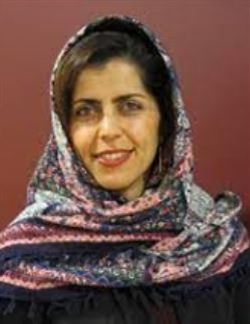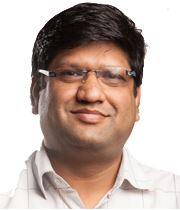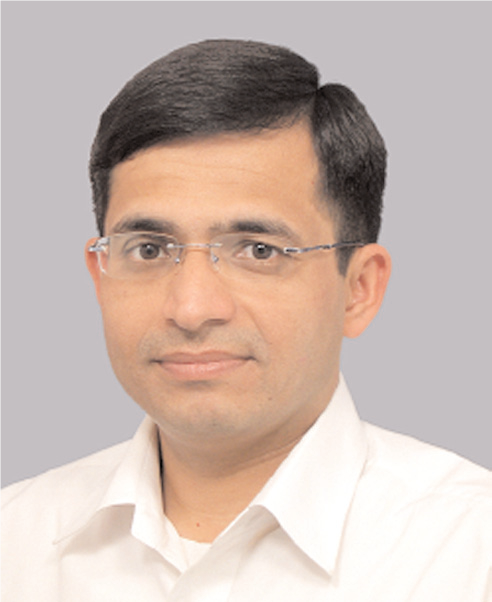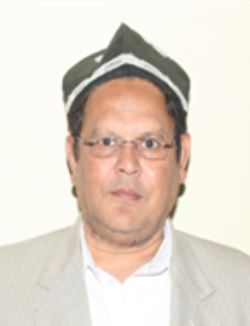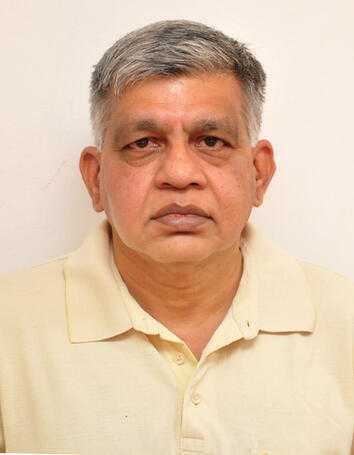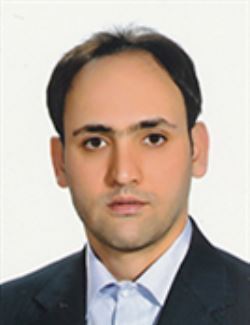
|
Title: Efficient and Privacy-Preserving Similarity Query with Access Control in eHealthcare
Rongxing Lu Bio: Rongxing Lu is a Mastercard IoT Research Chair, a University Research Scholar, an associate professor at the Faculty of Computer Science (FCS), University of New Brunswick (UNB), Canada. Before that, he worked as an assistant professor at the School of Electrical and Electronic Engineering, Nanyang Technological University (NTU), Singapore from April 2013 to August 2016. Rongxing Lu worked as a Postdoctoral Fellow at the University of Waterloo from May 2012 to April 2013. He was awarded the most prestigious “Governor General’s Gold Medal”, when he received his PhD degree from the Department of Electrical & Computer Engineering, University of Waterloo, Canada, in 2012; and won the 8th IEEE Communications Society (ComSoc) Asia Pacific (AP) Outstanding Young Researcher Award, in 2013. Dr. Lu is an IEEE Fellow. His research interests include applied cryptography, privacy enhancing technologies, and IoT-Big Data security and privacy. He has published extensively in his areas of expertise. Currently, Dr. Lu serves as the Chair of IEEE ComSoc CIS-TC (Communications and Information Security Technical Committee), and the founding Co-chair of IEEE TEMS Blockchain and Distributed Ledgers Technologies Technical Committee (BDLT-TC). Dr. Lu is the Winner of 2016-17 Excellence in Teaching Award, FCS, UNB. Abstract: Similarity queries, giving a way to disease diagnosis based on similar patients, have wide applications in eHealthcare and are essentially demanded to be processed under fine-grained access policies due to the high sensitivity of healthcare data. One efficient and flexible way to implement such queries is to outsource healthcare data and the corresponding query services to a powerful cloud. Nevertheless, considering data privacy, healthcare data are usually outsourced in an encrypted form and required to be accessed in a privacy-preserving way. In the past years, many schemes have been proposed for privacy-preserving similarity queries. However, none of them is applicable to achieve data access control and access pattern privacy preservation. Aiming at this challenge, we propose an efficient and access pattern privacy-preserving similarity range query scheme with access control (named EPSim-AC). |
|
Title: Digital Twin as a Service: A novel approach to address complex physical challenges
Shohin AheleroffAbstract: Investigating physical world challenges is often time-consuming, costly, and complex. However, the business problem is beginning to be solved by digital transformation. The basis for the Digital Twin has been laid through 3D modeling, IoT, and Augmented Reality technologies supported by Big data analytics and Machine Learning to track the past and predict across the value chain. Digital Twin helps to turn data into better decisions and brings significant business value from design to manufacturing and operations. |
|
Title: An IoT-enabled middleware as a retrofit for transforming legacy systems
Shohin AheleroffAbstract: The business model shift from selling products to providing personalized services is initiated in the growing sharing economy, which reduces costs and environmental impact globally. Such business transformation is challenging, but it can bring significant benefits to the enterprise and its customers. As an enabling technology, IoT is vital in transforming longstanding factories and conventional products into smart ones for creating extra value, including higher customer satisfaction following energy, resources, and waste reduction. I look forward to hearing from you. |
|
Title: Knowledge Base 4.0: Towards Intelligent Knowledge Bases in the Age of Big Data and Artificial Intelligence
Amin Beheshti Abstract: Intelligence is the ability to learn from experience. Knowledge workers in knowledge-intensive processes develop invaluable domain-specific expertise and knowledge over time. Accordingly, it is vital for organizations to capture this knowledge (which is hidden in the biological Neural Network of subject-matter experts) and enable novices/inexperienced knowledge workers to benefit from that in choosing the best next steps. This Keynote will highlight opportunities to link weak supervision and crowdsourcing techniques to incorporate knowledge in a continual fashion based on estimating uncertainty or errors from the existing knowledge and learning models. Applications may include handling cold start and concept drift situations. I will discuss the design of an intelligent Knowledge Base (KB), namely KB 4.0, for mimicking the knowledge of domain experts in knowledge-intensive processes, and using this knowledge to facilitate auto labelling of the data to be used in learning algorithms. I will present a few motivating scenarios and argue how inexperienced knowledge workers can benefit from such intelligent KBs.
Bio: Prof. Dr. Amin Beheshti is a Full Professor of Data Science and the Director of AI-enabled Processes (AIP) Research Centre, School of Computing, Macquarie University. Amin is also the head of the Data Analytics Research Lab and Adjunct Academic in Computer Science at UNSW Sydney. Amin completed his Ph.D. and Postdoc in Computer Science and Engineering at UNSW Sydney and holds a Master and Bachelor in Computer Science both with First Class Honours. In addition to his contribution to teaching activities, Amin extensively contributed to research projects; where he was the R&D Team Lead and Key Researcher in the 'Case Walls & Data Curation Foundry' and 'Big Data for Intelligence' projects. These Projects won the National Security Impact Award in 2016 and 2017. Amin has been recognized as a high-quality researcher in Big-Data/Data/Process Analytics and served as Keynote Speaker, General-Chair, PC-Chair, Organisation-Chair, and program committee member of top international conferences. He is the leading author of several authored books in data, social, and process analytics, co-authored with other high-profile researchers. Amin was able to secure over $10.8 Million in Research Grants for AI-Enabled, Data-Centric, and Intelligence-Led projects.
Website: https://data-science-group.github.io/people/aminbeheshti/
Photo: https://researchers.mq.edu.au/files-asset/109224700/amin1.jpg |
|
Abstract for IKT2022 conference In this study, different stages of the life cycle of a typical electrical machine are reviewed and their corresponding Digital Twin is discussed. The requirements of an electrical machine are different at its life cycle from design and manufacturing stages up to operation and maintenance stages; therefore, one digital twin may not be suitable for all stages. The main focus of the study is on the operation and maintenance stages of an electrical machine, due to the fact that for an existing machine other stages of its life cycle have been already elapsed. Depending on the importance of a typical electrical machine, traditionally, it is equipped with a number of sensors and transducers in order to facilitate monitoring of its operating condition. The collected data, analogue or digital, is processed to display/record the desired parameters of the machine; and more importantly, to issue an alarm and/or a trip signal when certain parameters reach a pre-set level. The usual protection system of a typical electrical machine operates in a binary mode. By adopting a suitable digital twin of an electrical machine, the idea is to adjust and control the machine operational point to maintain its parameters within the safe limits and to avoid an unwanted trip. In other words, to perform a predictable and controlled trip, if a trip is unavoidable. Another important use of digital twin of an electrical machine is to achieve and manipulate a predictive maintenance schedule for certain parts of the electrical machine, compared with other methods of maintenance. Other feasible usages of a machine digital twin are left to the imagination of the engineering community employing modern technologies such as the Internet of Things and Artificial Intelligence. |
|
Title: Cross-industry Standard Process for Data Mining (CRISP-DM)
Serwah SabetghadamAbstract: Nowadays, industrial organizations derive more values from data to optimize costs, increase performance or provide customized services through data science. The existence of a large amount of data, especially the data generated by users, creates the temptation to analyze it as quickly as possible and apply Machine Learning and Deep Learning algorithms. While what is usually understated in big data analysis is the phases of understanding the data and understanding the business requirements of the project. |
|
Title: Towards Personalized Education Through Contextual Content Enrichment
Vikram GoyalAbstract: Online learning platforms have changed the landscape of education. It has enabled the paradigm of learning from anywhere, imparting knowledge to the learners beyond the traditional classroom setting. To deliver learning content at scale to the learners and cater to the individual needs of the learners, the content in such platforms can no longer be static. It must adapt according to the interaction of the individual learners with the system. The learning platforms should allow onboarding of the new content from other sources and enrich existing content to fulfill the need of diverse learners. Our lab has worked on tasks related to content enrichment for enabling the search through various facets, difficulty estimation of questions, paraphrasing of algebraic word problems, and duplicate question detection. Solving the problems mentioned above would aid in designing better content for learning platforms and contribute toward the broad vision of personalized education. This talk would discuss various challenges and the solutions thereof related to the challenges. |
|
Title: Digital Entrepreneurship: Opportunities & Challenges Ahead
Md Tabrez Nafis Abstract: Digital entrepreneurship is the identification and pursuit of entrepreneurial opportunities based on the creation of digital artifacts, platforms, and infrastructures that provide services through technology. Digital artifacts consist of applications or any media component that offers a specific function to users. A digital platform is the collection of a common and shared set of digital artifacts that provide entrepreneurs with a venue for the production, marketing, and distribution processes. In the last two decades, digital entrepreneurship has opened new venues for entrepreneurial activities and has transformed the nature of uncertainty inherent to entrepreneurial processes and outcomes. |
|
Title: Recent Investigations in Machine Learning and Edge Computing
Rajeev Shorey Dr. Rajeev Shorey is the CEO of the University of Queensland – IIT Delhi Academy of Research (UQIDAR) at IIT Delhi, India. Rajeev also serves as an adjunct faculty in the Computer Science & Engineering department at IIT Delhi. He is an Honorary Professor at the University of Queensland, Australia. Rajeev received his Ph.D. and M.S. (Engg) in Electrical Communication Engineering from the Indian Institute of Science (IISc), Bangalore, India in 1996 and 1991 respectively. He received his B.E degree in Computer Science and Engineering from IISc, Bangalore in 1987. Rajeev career spans several reputed research labs – TCS Research & Innovation, General Motors (GM) India Science Laboratory, IBM India Research Laboratory and SASKEN Technologies. Dr. Shorey served as the first President of NIIT University from 2009 to 2013 before joining the TCS Research Labs in 2014. Rajeev’s work has resulted in more than 75 publications in international journals and conferences and several US patents, all in the area of wireless and wired networks. He has 13 issued US patents and several pending US patents to his credit. Dr. Shorey serves on the editorial board of the IEEE Internet of Things Journal and Springer’s Journal of Wireless Networks. His areas of interest are Wireless Networks including 5G Networks, Telematics, IoT, Industrial IoT, IoT Security and Automotive Networks, including the intersection of AI, Machine Learning and Communication Networks. For his contributions in the area of Communication Networks, Rajeev was elected a Fellow of the Indian National Academy of Engineering in 2007. He was recognized by ACM as a Distinguished Scientist in December 2014. He was elected a Fellow of the Institution of Engineering and Technology (IET), UK in 2021. Rajeev serves on the Executive Council of ACM India and the Executive Council of IEEE ComSoc, Delhi Chapter. He is the co-founder & steering committee co-chair of two of the highly reputed conferences – COMSNETS (www.comsnets.org) and AIMLSystems (www.aimlsystems.org). Abstract: In this talk, we highlight the research challenges in the intersection of Machine Learning and Edge Computing. More specifically, we look at the Federated Learning paradigm in a faulty edge ecosystem.
Federated Learning deviates from the norm of ”send data to model” to ”send model to data''. When used in an edge ecosystem, numerous heterogeneous edge devices collecting data through different means and connected through different network channels get involved in the training process. Failure of edge devices in such an ecosystem due to device fault or network issues is highly likely.
In this talk, we first analyse the impact of the number of edge devices on an FL model and provide a strategy to select an optimal number of devices that would contribute to the model. We observe the impact of data distribution on the number of optimal devices. We then investigate how the edge ecosystem behaves when the selected devices fail and provide a mitigation strategy to ensure a robust Federated Learning technique. Finally, we design a real-world application to highlight the impact of the designed mitigation strategy.
The talk will end with a brief discussion of several open research problems in the intersection of Machine Learning and Edge Computing.
|
|
Title: Applicability of Machine Learning dexterities for enhancing security in Digital Computational Systems
Mohammad Ubaidullah Bokhari Abstract: With the sudden development of Human Civilization in the dimension of Information technology, the data which is being sent, received, or stored on various devices around the globe is increasing at an exponential rate. In terms of much research, Data is considered the most crucial resource of the century in present times. Now, here the question arises, what makes this data flowing freely over the communication channels so important and precious? The data from the kind of different users is can be utilized in various ways to predict different kinds of estimates with a wide range of applicability. The data from different devices are digital assets that can be considered sensitive when it comes to the privacy of a user. Every Digital organization is directly or indirectly accessing some sort of data from its user, which can be proven hazardous if accessed by any malicious entity in the Network. With the Increasing Volume of data, the responsibility of securing the digital assets of the users of an organization is also increasing with the development of technology. Machine Learning is a terminology given to mathematical and statistical techniques which can be implemented with the help of modern computer systems to predict and forecast the present state of an individual or a system. The concept of Machine Learning is not new, but the technology to implement the notion recently got powerful enough and getting stronger with time. There are a number of ways by which Machine Learning techniques can be utilized to enhance security in Digital Systems which can help in maintaining the integrity of the Digital users of any organization serving any Digital facility. Machine Learning possesses an enormous ability to reshape the Security Industry in different magnitudes for the future with increasing technology and research. Brief Introduction: Prof. Mohammad Ubaidullah Bokhari is presently working as a Professor in the Department of Computer Science, AMU, Aligarh, (INDIA) and also served as the Principal Investigator (PI) of the ambitious project, NMEICT ERP Mission Project (Govt. of India). He worked as Chairman Department of Computer Science from 12. 03.2014 to 11.03.2017 and 01.01.2010 to 31.12.2012. He has also worked as an Associate Professor and Director of Studies at the Australian Institute of Engineering & Technology, Victoria, Melbourne (Australia). Prof. Bokhari has a vast teaching experience of more than thirty-three years. Under his guidance, more than 700 students of PG level have completed projects/Dissertations as well as more than 500 projects at the UG level. Prof. Bokhari obtained his doctorate in the field of Software Reliability and a Master's degree in computer science from Aligarh Muslim University. During his academic pursuit, he has visited different countries like Australia, France, Canada, South Africa, etc. for research purposes and to acquire academic excellence. He is the recipient of many scholarships and awards in the concerned domain throughout his career. He was awarded the prestigious Australian Postgraduate Award (Industry) Scheme Scholarship in 2004. He also attended the prestigious Academic Leadership Program (LeAP) through the Ministry of Human Resource Development, Government of India in collaboration with Monash University, Australia. He is a lifetime member of the Computer Society of India (C.S.I.) and a member of IEEE. He has published more than 150 research papers at reputed National and International Conferences. Prof. Bokhari has also authored three (04) books on different areas of computer science, and more than 170 Research papers in different peer-reviewed Journals. He has the privilege of starting the Ph.D. program in the Department of Computer Science, under his supervision 18 research scholars completed their Doctorate Degrees and more than 5 scholars are currently working. Prof. Bokhari is also serving as the Chief Editor of several well-reputed journals. His research interests include Software Reliability, Security and Cryptography, Software Engineering, Database Management Systems, Artificial Intelligence, Image Processing, Data Science, and E-Learning. He along with two of his research scholars developed a new software stream cipher named "BOKHARI Stream Cipher". The design is aimed to provide 128-bit level security and is expected to resist available cryptanalytic attacks and show efficiency in terms of speed, security, and complexity. Prof. Bokhari is also having 2 patents under his name for enhancing security in the networks. He is also presently serving as an Assessor in the National Assessment and Accreditation Council. |
|
Title: The Functional Imperative: Pedagogy of Programming
S. Arun Kumar
|
|
Title: Towards the Development of a Realistic Multidimensional IoT Profiling Dataset
Hassan MahdikhaniAbstract: The Internet of Things (IoT) is an emerging technology that enables the development of low-cost and energy-efficient IoT devices across various solutions from smart cities to healthcare domains. With such a complex and heterogeneous instance of IoT devices and their applications, numerous challenges arise in both device management and security concerns. Thus, it is essential to develop intelligent IoT identification/profiling and intrusion detection components that are tailored to IoT applications. Such systems require a realistic and multidimensional reference IoT dataset for training and evaluation. Device identification/profiling ensures the authenticity of the devices attached to the IoT network and environment which can be achieved by fingerprinting a device. Since fingerprinting is mostly examined by device network flows and device local attributes, we have proposed this study to intelligently recognize machine-to-machine communication and identify each device properly. In this paper, we analyzed the behaviour of 60 IoT devices during experiments conducted in our lab setup at the Canadian Institute for Cybersecurity (CIC). Our IoT devices include WiFi, ZigBee, and Z-Wave devices. We collected data from each device in four stages: powered on, idle, active, and interactions. Besides these stages, different scenario experiments were conducted using a microcosm of devices to simulate the network activity of a smart home. Additionally, we have generated two attack datasets, namely flood denial-of-service attack and RTSP brute-force attack. Lastly, we implement an extensive case study on the transferability of the RF classifier and train our model with the dataset from our lab, transfer the model to the dataset from a different lab and test the trained model on their dataset. This paper’s dataset materials are available on the CIC dataset page under the CIC IoT dataset 2022. |
|
Title: Behavioural Monitoring and Security Profiling in the Internet of Things (IoT)
Sajjad DadkhahAbstract: In recent years the number of IoT devices in businesses has significantly increased, which creates an undeniable challenge for network administrators and industries to identify and monitor the heterogeneous IoT environment. Also, identifying IoT devices helps organizations resolve several security dilemmas, such as determining if connected IoT devices' behaviour is compromised or not. In this work, we propose a distributive profiling mode to distinguish between IoT and non-IoT devices, map devices, identify the network that devices are attached to, and then continuously update the profile. Using a hybrid set of features and 23 new proposed features for identifying IoT devices, our method improves accuracy and shorter training time compared to other existing methods. Our proposed approach experiments with 18 Machine Learning (ML) classifiers on three publicly available datasets, i.e., IoTSentinel, UNSW, LSIF. Our study shows that Random Forest (RF) and Decision Tree (DT) classifiers outperformed the other ML classifiers by achieving an average accuracy, precision, recall, and f1-score above 90% with a shorter training time. This shows that our proposed system is suitable for providing a more generalized solution for profiling IoT devices. |
آخرین مهلت ارسال مقالات:
1401/08/20اعلام نتایج داوري مقالات:
1401/09/01انتشار نسخه نهایی:
1401/09/15روزهای برگزاری کنفرانس:
1401/09/291401/09/30
1401/10/01
دبیرخانه سیزدهمین کنفرانس: کرج دانشگاه خوارزمی، دانشکده فنی و مهندسی، معاونت پژوهشی دانشکده فنی و مهندسی
مسئول دبیرخانه: هیوا سلکی
تلفن: (2612) 02634579600 تلفن دبیرخانه: (2612) 02634579600
پست الکترونیکی: ikt@khu.ac.ir وب سایت : http://iktconference.ir
دبیرخانه انجمن ICT ایران: تهران، خیابان حافظ، دانشگاه صنعتی امیرکیبر، ساختمان ابوریحان، طبقه ششم، اتاق 612
مسئول دبیرخانه: سمیه آهاری
تلفن: 66485856-021 وب سایت انجمن: http://iranict.aut.ac.ir




